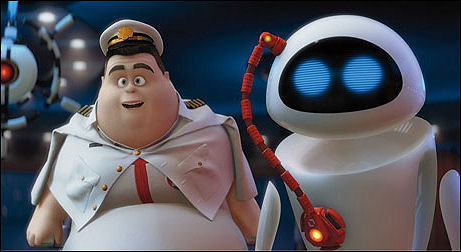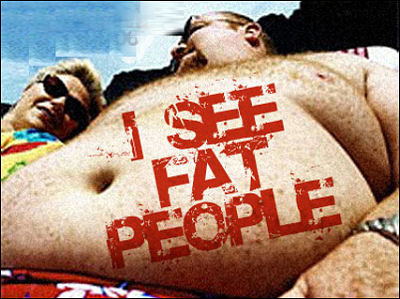“If Michael Moore, Oliver Stone or, God forbid, some effete French director had crafted a feature film that was a thinly disguised political broadside portraying Americans as recumbent tubbos who moved around on sliding barcaloungers with built-in video screens and soft drinks always at the ready, don’t you think there’d be some sort of notice taken?”

So asks Hitsville’s Bill Wyman, the former arts editor for NPR and Salon. His point is that Pixar has done exactly this with WALL*E and that reviewers have barely acknowledged it. Many who have admitted that WALL*E has this social criticism aspect have done so in a vague pussyfoot fashion. The only ones who have stood up Gary Cooper-style and called a spade a spade, says Wyman, are N.Y. Times critic A.O. Scott and myself and…I think that’s it. (In Wyman’s piece, I mean. Variety‘s Todd McCarthy and Cinematicals’s James Rocchi also took note.)
“What was rarely analyzed in the reviews is that the earth is deserted because a Wal-Mart-like company called Buy n’ Large has filled it up with trash, and the departed humans, expanded to Big Gulp size, are contentedly gorging themselves amid the comforts of a flying Club Med, where they slide around on those carts, on which they watch TV continuously without even having to sit up completely,” Wyman writes. “While some of the better reviewers mention the beglotted humanoid forms, I found it odd that most mainstream reviewers didn’t bother to point out what the film was saying.
“I’m no film theorist, but I think what director Andrew Stanton is trying to tell us is that we humans eat so much and limit our movements to such a degree that we will soon become immobile whales unable to focus past the video screens permanently affixed in front of our field of vision.
“And not subtextually, either; as my friend Michael Sragow says about such obvious material in films, ‘It’s not subtext — it’s text text.’










